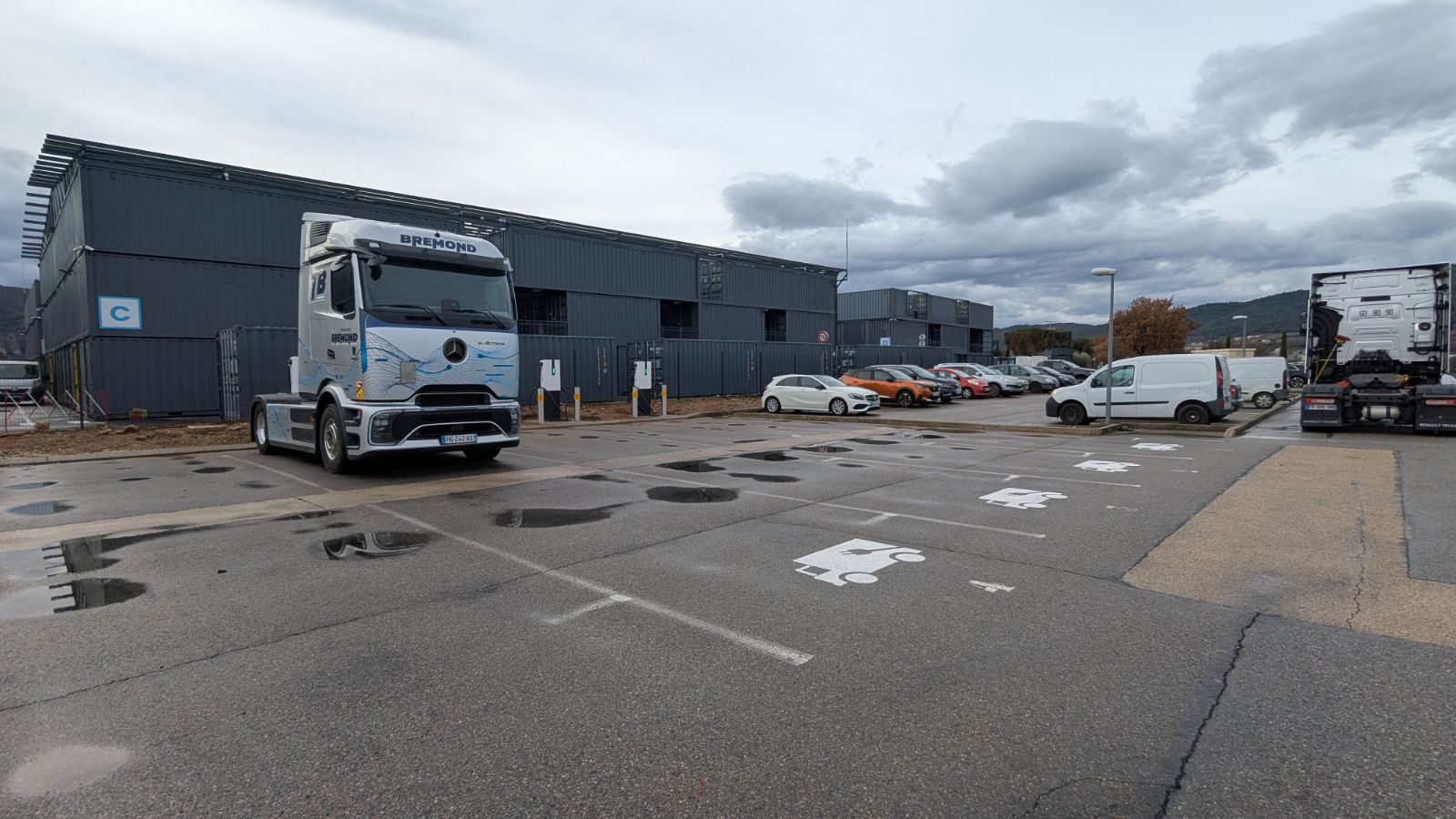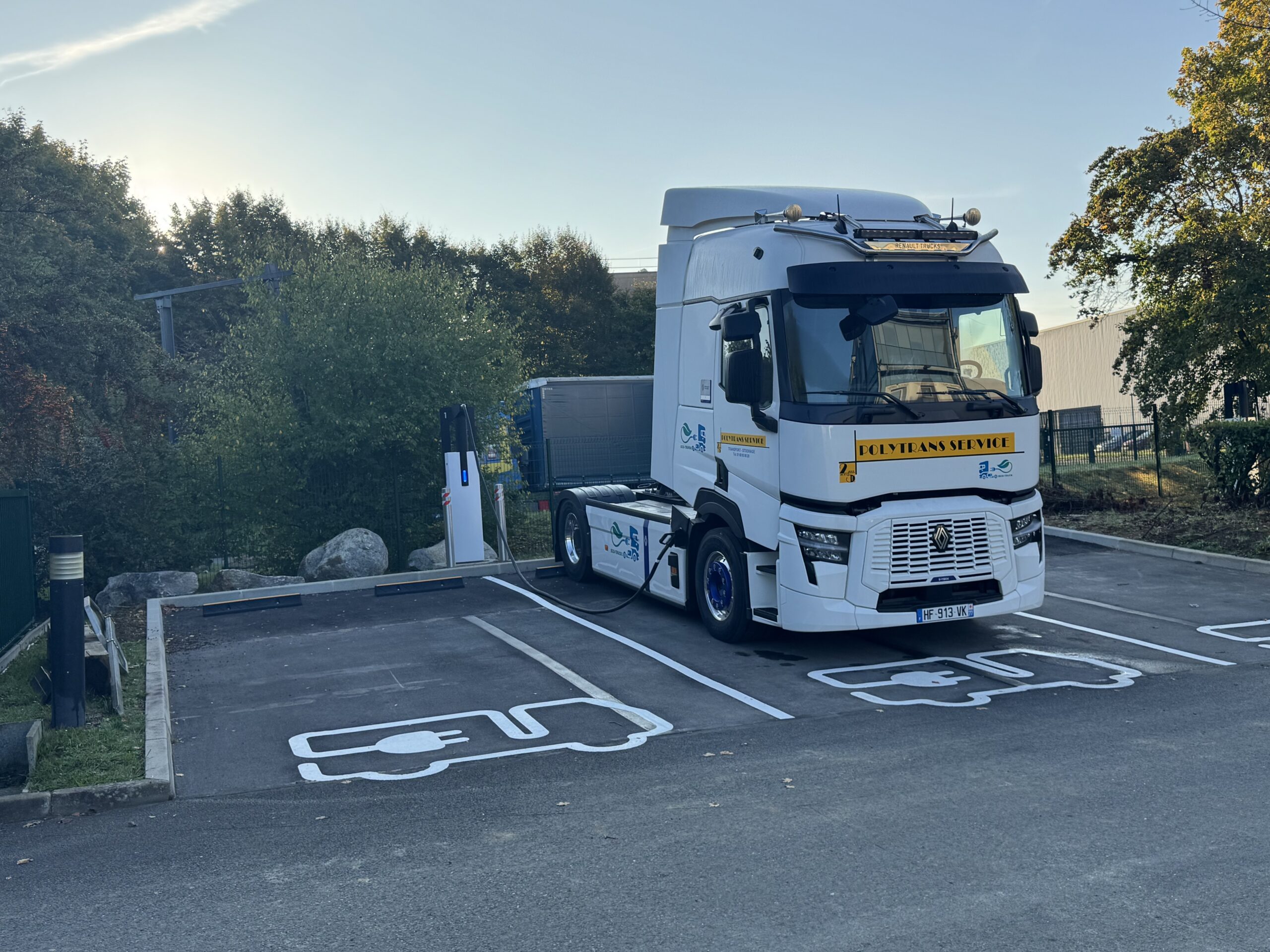As the transition to electric mobility gathers pace, heavy vehicle fleet managers are faced with a new challenge: how to recharge vehicles with high-capacity batteries efficiently? This is where the Megawatt Charging System (MCS) comes in. The MCS promises to drastically reduce charging times and provide a complementary solution for demanding use cases.
What is MCS?
The Megawatt Charging System (MCS) is a high-power charging connector standard designed to deliver powers of up to 3.75 MW. This type of charging enables high-capacity batteries to be recharged much more quickly than with current solutions, such as DC fast-charging stations with CCS connectors, which are generally limited to 400-500 kW.
Introduced mainly in response to the needs of heavy-duty electric vehicles, the MCS is aimed at companies managing fleets of electric trucks or buses covering long distances or with intensive duty cycles. This system is not yet deployed on a large scale, but it represents a strategic advance for the future of electric mobility, particularly in sectors where recharging time may become a limiting factor.
Use cases where MCS is the solution!
The use of MCS technology will be particularly well suited to heavy vehicles operating on long-distance routes (over 300-400 km per day), with no return to the starting point on the same day.
The MCS enables a heavy vehicle to be recharged in hidden time during the regulatory breaks taken by itinerant truck drivers, where CCS solutions require more than an hour.
In these situations, the Megawatt Charging System becomes a real asset for the electrification of heavy mobility, particularly in public highway stations and first/middle mile logistics warehouses with a large flow of long-distance tractor-trailers.
When is MCS not necessary?
Although the MCS provides convincing solutions for truck and bus fleets on the move, it is not the answer for all uses of heavy-duty electric vehicles. For fleets operating over shorter distances, including same-day return to the point of departure, the CCS power range (up to 400-500 kW) is normally sufficient. For example, trucks operating on urban delivery routes, inter-site shuttles or electric buses serving short routes in cities don’t necessarily need the power of the MCS.
In these cases, the installation of CCS fast charging stations is more appropriate. Not only are they less costly to install, but they more than meet the energy needs of these vehicles, with a reasonable recharge time.
A complementary future: MCS and CCS
The future of heavy-duty electric vehicle recharging is not based on the opposition between MCS and CCS, but on complementarity between the two. CCS charging stations will remain essential for fleets operating on shorter routes or with longer, more predictable charging times. On the other hand, SCMs will play a central role in public truck recharging infrastructures, providing additional flexibility in large logistics warehouses.
This coexistence is not only necessary, but beneficial. It enables fleet managers and recharging operators to optimize their infrastructures according to their specific needs, while ensuring scalability to meet the new demands of electromobility. Flexibility and adaptability are the watchwords of Chargepoly’s recharging solutions, to support our customers with the ideal response to their electric transition.



